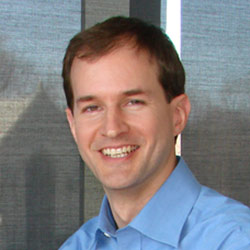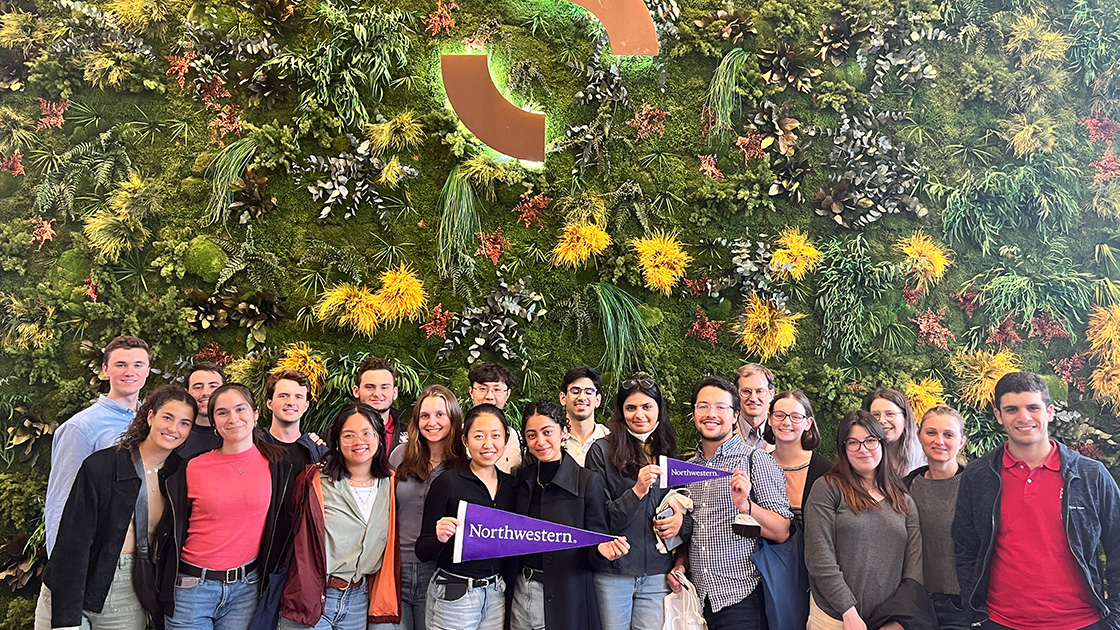Trek to Germany Opens Eyes of Engineering Students
A cohort saw firsthand how German scientists are fighting climate change

Whether it’s engineering or any other discipline, it’s important to learn how people across the globe approach their jobs. Seeing other cultures and their different priorities can open eyes and allow one to view their own profession with a wider lens.
That’s the main goal of the Global Engineering Trek, an immersive undergraduate experience offered through McCormick Global Initiatives (MGI), that took students to Germany last September.

A cohort of 18 students led by Matthew Grayson, professor of electrical and computer engineering, spent nine days in Germany. During their Trek, the students visited the University of Hamburg and the University of Cologne and witnessed firsthand how these scientists try to make the world a better place, while getting a chance to enjoy themselves on a memorable trip.
“Instead of imagining yourself in an experience, it becomes more ingrained in your mind if you experience it in person,” said Tom Ratemo, a sophomore studying industrial engineering and management sciences. “There are some things, like seeing how vehicles are manufactured. I could see that on YouTube or watch a video somewhere or even hear from someone about the process, but being there at the manufacturing center is a whole different experience.”
What stuck with the travelers the most was the emphasis on sustainability, both in terms of research and day-to-day life. One stop brought the tour to the world-renowned Max Planck Institute for Meteorology in Hamburg. Founded in 1975, the institute is affiliated with the Max Planck Society and works to understand Earth’s changing climate.
That network of research impressed Michael Richards, a third-year electrical engineering major who is also pursuing a master’s degree. He witnessed how Germany is focused on sustainability and finding solutions for one of the 21st century’s biggest issues.
“It was really interesting to me to see that you had all of these individual centers that were dedicated to mapping out and researching both the effects of climate change, and then understanding the progression of it, going hundreds of years into the future,” Richards said. “I think that they're doing a really good job with this because they are presenting information in an unbiased way, one that's not sensationalized.”
Ratemo and Richards both plan on applying what they learned and saw as they move forward in their careers. And, perhaps, their lives.
On a personal level, Ratemo saw how aware the German populace is of environmental concerns. They dispose garbage in a way that impressed Ratemo, who noted that Germans are incentivized to return bottles and cans for euros at designated centers.
That isn’t the only way Ratemo was inspired.
“I will definitely try to incorporate some of those practices in terms of saying, ‘How can I build a space that's self-sufficient and self-sustainable?’” Ratemo said. “You have your own heating system. You have your own solar panels, and I could design an entire system. I feel like that's something I could push myself to develop.”
Richards also was motivated, and can see himself working in Germany or elsewhere abroad to fight climate change. He also fully endorsed the program, and noted that he took home numerous business cards and made many contacts for his future.
“It's very important to not be caught up with what you believe based on the perceptions of where you come from. It's important to really get the big picture and understand what's going on everywhere,” Richards said. “Engineering is such an international thing that you would be remiss not to be taking opportunities to expand your horizons and explore what's happening with companies abroad.”
MGI allows students, faculty, and alumni to explore, experience and engage with global scholarly activities anchored by McCormick programs and initiatives. 2023 undergraduate immersion programs include trips to Germany, Israel, Taiwan, and Chile. McCormick Global Initiative’s Global Engineering Trek was created in partnership with the Institute for Sustainability and Energy at Northwestern.
More information about the programs and upcoming application deadlines can be found on the Global Initiatives website.





